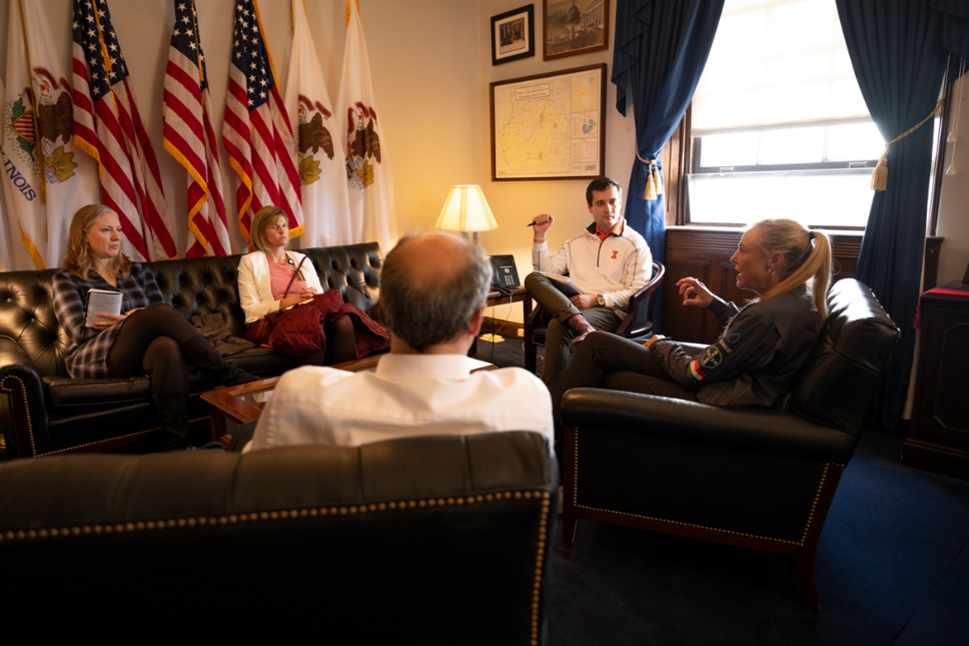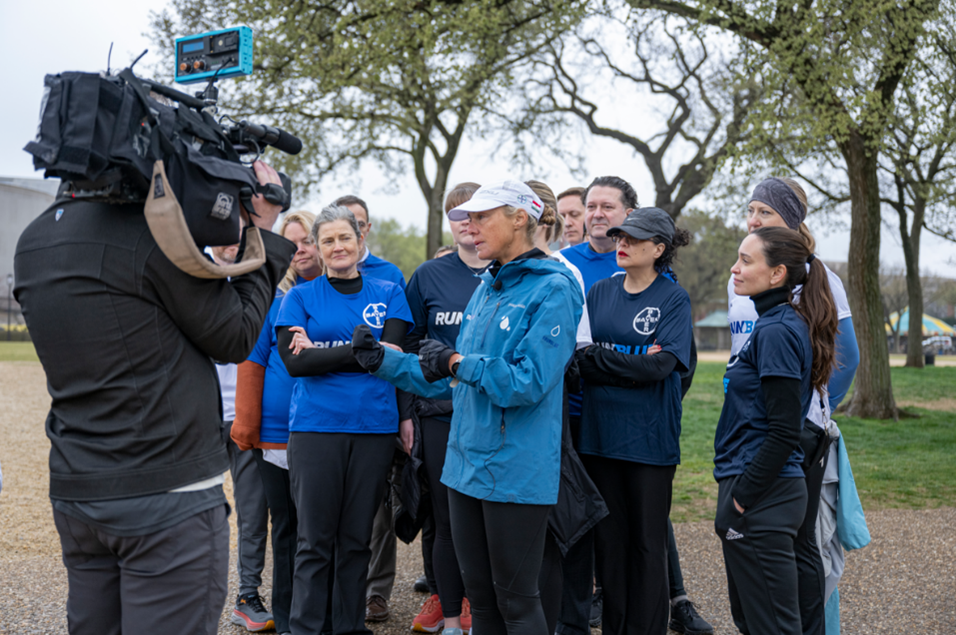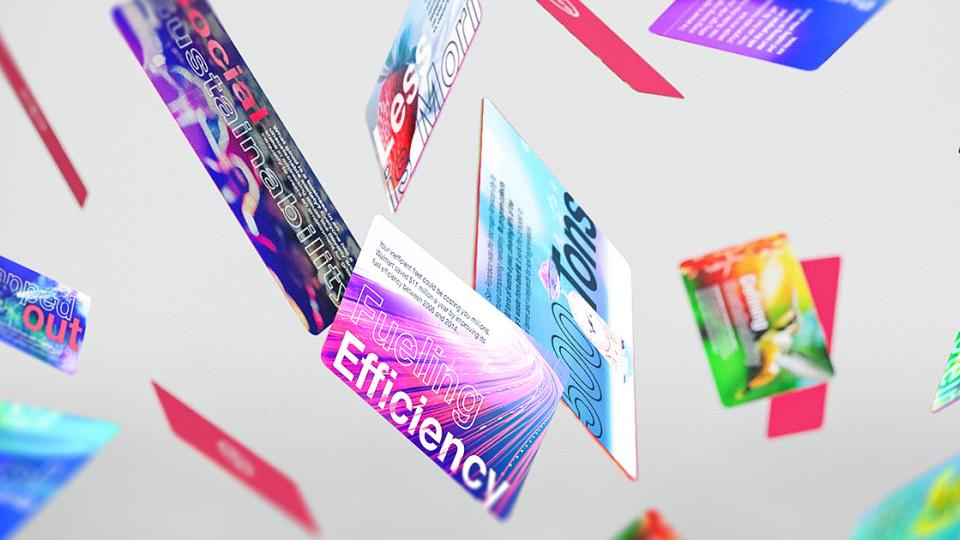Trailblazing with Science and Advocacy: How Bayer US Fights the Water Crisis

- This Is Bayer
- Agriculture
- Consumer Health
- Pharmaceuticals
- Products
- Community
- News & Stories
- Careers
- This Is Bayer
- Agriculture
- Consumer Health
- Pharmaceuticals
- Products
- Community
- News & Stories
- Careers
Around the world, the water crisis is a dynamic problem that poses a foreboding ripple effect across environmental and human health.
In a new survey from The Harris Poll commissioned by Bayer, a myriad of concerns associated with water are top of mind for many Americans, including inequitable access, cleanliness and combatting drought. In fact, nearly two in three (61%) Americans are concerned about “ensuring everyone has their fair share of clean water” while more half are concerned about the safety of their local water supply (54%).
But the global water crisis expands far beyond the United States. “In 2018, 3.6 billion people – about half the global population – faced inadequate access to water at least one month per year,” explains Matthias Berninger, Executive Vice President, Public Affairs, Science, Sustainability & HSE.“ By 2050, this figure is projected to rise to more than 5 billion, while nearly 40 percent of croplands is forecast to be exposed to severe drought for three months or more each year.”
The Effect of Inequity
Around the world, the water crisis is a dynamic problem that poses a foreboding ripple effect across environmental and human health. Beyond water scarcity, the water crisis causes warming oceans and lakes, excess flooding, and contaminated water. “It means food shortages. It means mass migration. It means more disease,” Berninger adds.
According to The Harris Poll results, inequity and the water crisis’s effects are closely linked. In one of the most alarming findings, three in four (73%) Americans say they do not drink water directly from the tap in their homes, relying on filters or bottled water instead. Of those who drink mostly bottled water, half are from households earning less than $50,000 annually, highlighting an access disparity for low-income households. And across the findings, Hispanic and Black Americans are more likely to be concerned about water issues than their white counterparts.
Change is a Marathon, Not a Sprint

As a global leader in both agriculture and health, Bayer is driving change and reinforcing their commitments to ensure access to safe water for all. In support of expanding education, Bayer US is the lead sponsor of Mina Guli's RUN BLUE campaign, a monumental water awareness initiative. Mina is CEO of the non-profit Thirst Foundation, a renowned water advocate, and ultramarathoner who is running 200 marathons in a year to bolster dialogue around the water crisis. Started in March 2022 and culminating at the United Nations in New York on March 21, 2023, just prior to World Water Day, Mina is running around the world while speaking with local stakeholders along the way.
“The world still turns a blind eye to our worsening water crisis, even though its effects are very real,” Mina said. “Addressing the water crisis requires real action from everyone, including businesses. That’s why it’s so impactful for a company like Bayer to make water a priority in its operations, supply chain and innovations.”
But the awareness and community generated by RUN BLUE campaign is only part of the story. Bayer’s leading agricultural scientists continue to take action against the water crisis by developing innovative solutions for one of the most water-intensive sectors.
Seeding a Solution
Agriculture innovation is key to generating long-term water resiliency in crop science, and Bayer scientists are leading the way with several breakthroughs.
- Advanced breeding — Our scientists have developed locally adapted hybrids that have higher flooding and drought tolerance. For example, hybrid rice seeds like Arize® AZ 7006 are specially designed to survive in extreme flood conditions, while Arize® 6444Gold uses less water.
- Integrated Weed Management (IWM)— Because weeds compete with crops for water, this program helps farmers produce maximum yield by reducing reliance on a single weed control method.
- Irrigation technologies—We are partnering with irrigation pioneers like Netafim and BGN Tech to develop and optimize automated irrigation systems that use up to 60% less water, and significantly less energy, than conventional irrigation.
- Conservation Tillage systems (strip-till; no till) – Adapted tillage techniques reduce run-off, increase infiltration and decrease the evaporation of water in soil, contributing to better soil quality with less water.
Partnering with the UN to Enact Change
On World Water Day, March 22, Bayer is making water an integral part of its business by launching its new water strategy at the UN 2023 Water Conference in New York. Bayer’s recent sustainability report outlines its operational commitments, but this new positioning aims to drive systemic change by touching every piece of the value chain. The activities will encompass Bayer’s own operations to the farmers Bayer serves.

One key element of the water strategy is resilient agriculture, whereby the company pledges to improve water use per kilogram of crop by 25% and reduce the environmental impact of its crop protection portfolio by 30% through 2030. In addition, Bayer is dedicated to evaluating investments and assessing the sustainability performance of suppliers and growers to promote water-use efficiency. Bayer is also expanding water protection efforts in communities where Bayer employees live and work, and leveraging ambassadorships to ensure robust private-sector engagement in the water debate.
“Until now, the topic of water has been overlooked in the climate debate despite the many interlinkages, but with the UN 2023 Water Conference, it is gaining momentum,” said Cristina Alonso Alija, Head of Sustainability, Safety, Health & Environment, and responsible for the water strategy at Bayer. “With these investment decisions, we will contribute to climate resilience and to more sustainable water usage.”
Bayer’s water stewardship strategy combines efforts with the World Meteorological Organization for Water and Climate Leaders, the Water Resilience Coalition, and Mina Guli to improve the global political framework and enhance awareness about the water crisis among the public.
How to Sustain Momentum

We know that fighting the water crisis cannot be achieved in a silo. It requires partnership and honest collaboration across private, public, and political sectors.
“At Bayer, our vision of Health for All, Hunger for None mandates we do our part to keep water accessible, clean and abundant,” Berninger says. “It’s up to businesses across all sectors to voluntarily reduce the water footprint of their own activities, invest in innovations that help their customers to become increasingly water-smart, scrutinize their supply chains for planet-conscious water management, and incorporate water use in their investment decisions. Water is everybody’s business.”
Learn more about Bayer United States’ sustainability efforts here.




